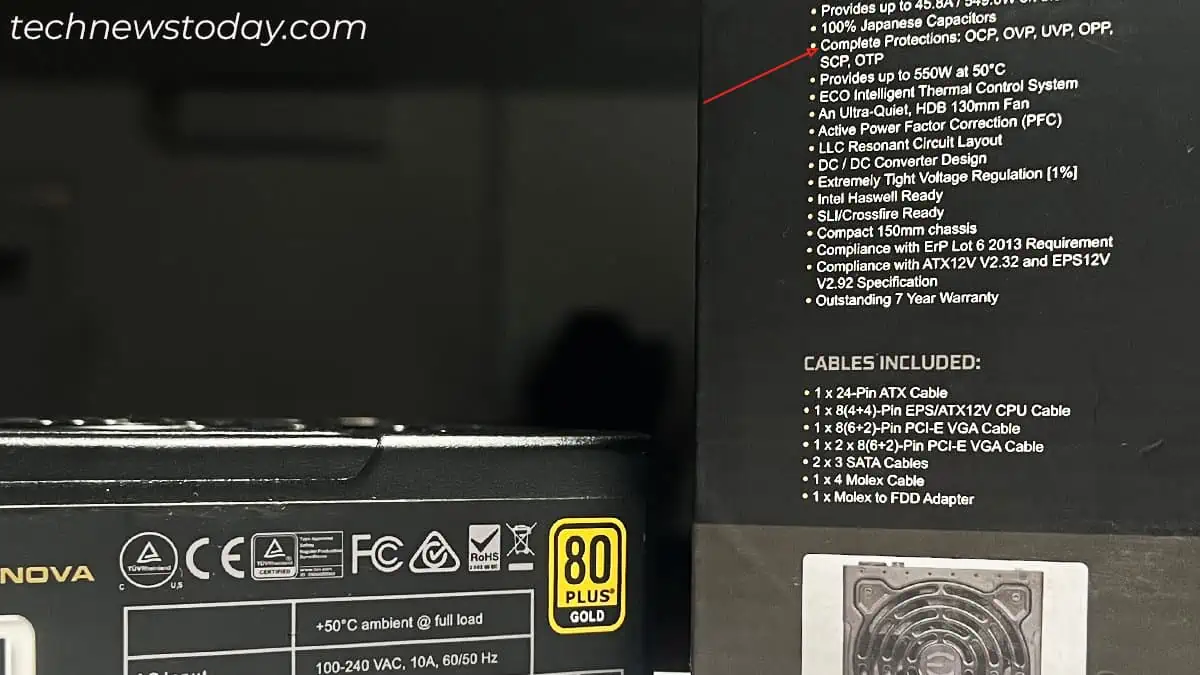I strongly recommendnot to usean underpowered PSU. If your system tries to draw more power than the PSU can supply, you’ll encounter problems likerandom freezes,overheating,reduced efficiency, andfan noise.
In the worst case, the PSU can evenfry your system.
One exception is high-end PSUs that come with theOverPowerProtectionfeature. In case of over-power-draw, these kinds of PSUs willshut downto protect the system from any damage.

Let’s look at two common cases to better understand the potential risks of using an underpowered PSU.
Case 1: If Power Draw Exceeds Rated Output Power of PSU
PSUs with OPP features are much safer at the time of over-power-draw. For instance, a650-watt PSUwill shut down if the system’s power draw surpasses the 650W limit.
Some manufacturers do provide a little wiggle room, so thepower supply tripsonly after the power draw reaches 110% to 150% of thePSU wattage.
But that’s not an issue either.Your power supplyis still going to shut down.
Sadly, this is not the case with non-OPP power supplies. You’ll probably experience crashes,unwanted restarts, and maybe even blue screen errors.
The real problem is the worst-case scenario. Although the chances are minimal, overloading cheap PSUs might evenput your components on fire.
So, if you smell something unusual from the PSU, grab the power cord quickly and pull it out. Don’t take a risk.
Note: You may find people talking about how underpowered PSU bottlenecks or throttles theperformance of your PC. But that’s completely misleading.
There’s no way PC components cancommunicate with the PSUabout the remaining power. They keep drawing the power assuming the PSU can supply it.
Case 2: If the PSU Lacks Sufficient Headroom
The second scenario is if your system power draw doesn’t exceed the PSU’s wattage but is close to the maximum capacity.